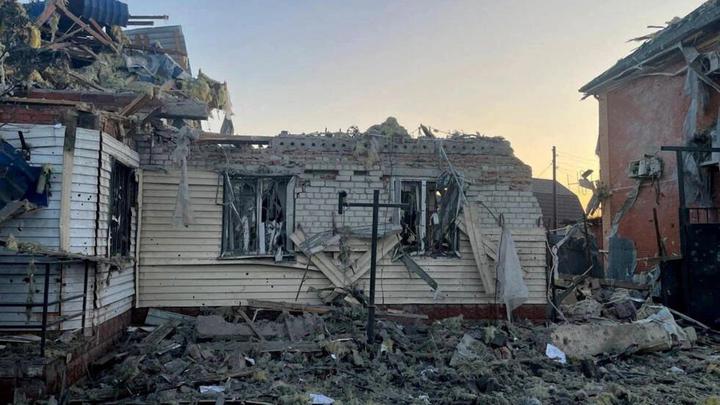Ukraine's Defense Capabilities Post-2022 War
Author: Prof. Engr. Zamir Ahmed Awan, Founding Chair GSRRA, Sinologist, Diplomat, Editor, Analyst, Consultant, Advisor, and Non-Resident Fellow of CCG. (E-mail: awanzamir@yahoo.com).
After the 2022 Ukraine-Russia war, Ukraine's defense capabilities have seen significant enhancements, primarily through substantial military aid and advanced technologies provided by Western allies. A pivotal development in Ukraine's air defense is the arrival of F-16 fighter jets, which began with the first batch arriving at the end of July 2024. While a total of 24 jets are expected by the end of 2024, Belgium, Denmark, Norway, and the Netherlands have committed to supplying Ukraine with 80 F-16s, though there is no clear timeline for the full deliveries or training of additional pilots.
These F-16s are intended to strengthen Ukraine's air defenses, particularly in protecting cities and critical infrastructure from Russian bombardment. However, the limited number of jets received so far is not sufficient to effectively counter Russian air power, highlighting the ongoing challenge Ukraine faces in achieving air superiority.
Ukraine's military strength has grown to include around 700,000 active troops, with a mix of Soviet-era and modern Western-supplied weapons. The army's arsenal now includes tanks like the T-64, T-72, and modernized T-84s, a variety of artillery, including howitzers and rocket systems, and air defense capabilities bolstered by systems such as the S-300, Buk-M1, and Western-supplied NASAMS.
Western countries, particularly the United States, the United Kingdom, Germany, and Poland, have been crucial in reinforcing Ukraine's defense. The U.S. has supplied HIMARS rocket systems, Patriot missile batteries, and substantial quantities of ammunition. The UK has provided Challenger 2 tanks and long-range missiles, while Germany has delivered Leopard 2 tanks and sophisticated anti-aircraft systems. Poland has been instrumental in supplying artillery and armored vehicles. Additionally, Ukraine's forces have received extensive training from Western countries, significantly improving their combat effectiveness.
Despite these advancements, Ukraine still faces significant challenges. Russia maintains a superior military in terms of equipment and resources, and Ukraine's logistics are strained by the need to maintain and supply its military amidst ongoing Russian attacks on infrastructure. The current limitations in Ukraine's air power, despite the introduction of F-16s, continue to make it difficult to fully counter Russian dominance in the skies.
Russia is likely to respond to these developments with intensified asymmetric warfare tactics, such as cyberattacks, disinformation campaigns, and the use of drones and precision-guided munitions. Russia may also escalate the conflict by targeting supply lines and deploying advanced air defense systems to neutralize the F-16 threat.
The involvement of the West, particularly the U.S., has complicated the conflict by prolonging hostilities and making diplomatic resolutions more challenging. This has escalated tensions, drawing in more countries and potentially widening the conflict's scope. In a worst-case scenario, Russia might resort to using more aggressive tactics, including the potential use of tactical nuclear weapons, to counter Ukraine's enhanced defense capabilities. However, such an escalation would likely trigger severe international backlash and further complicate the global security environment.
China's Role in Bringing Peace to the Ukraine-Russia War
China has positioned itself as a key advocate for peace in the Ukraine-Russia war, striving to broker a resolution that would end the conflict amicably while preserving the dignity of both nations involved. China's approach to peace is rooted in its long-standing principles of non-interference and diplomacy, seeking to stop further bloodshed by promoting dialogue and mutual understanding between Ukraine and Russia. China's efforts aim to achieve a balanced solution that satisfies both sides, allowing them to save face and move forward without further escalation.
China's desire for peace is in stark contrast to the role of the United States and other Western nations, whose actions have often exacerbated the conflict. By supplying advanced weapons, military aid, and intelligence to Ukraine, the West has not only prolonged the war but also expanded its scope, making diplomatic solutions more difficult to achieve. The Western narrative, driven by geopolitical interests, has focused on confrontation rather than reconciliation, leading to further destabilization of the region.
China's commitment to peace is evident in its consistent calls for ceasefires, negotiations, and respect for the sovereignty of all nations involved. As a responsible global power, China has worked to mediate tensions and encourage a peaceful resolution, emphasizing that continued conflict serves no one's interests and only leads to more suffering.
In contrast, the West and America have often been seen as promoting war and confrontation, using the Ukraine-Russia conflict as a proxy battleground for their broader geopolitical ambitions. This approach has undermined global stability and has hindered efforts to bring about a peaceful resolution.
China has firmly positioned itself as a peacemaker in the Ukraine-Russia war, advocating for a resolution through diplomacy and dialogue. Unlike the West and the United States, which have often fueled confrontation and prolonged the conflict through military aid and aggressive rhetoric, China seeks to de-escalate tensions and promote a peaceful settlement.
China's role as a peace broker is not merely theoretical; it has been demonstrated in its successful mediation between Saudi Arabia and Iran, two longstanding rivals, leading to a historic peace agreement. Additionally, China's efforts to unite various Palestinian factions showcase its commitment to fostering dialogue and reconciliation in some of the world's most complex conflicts.
Given its proven track record, China is widely regarded as being serious about ending the Russia-Ukraine war. China's experience, capabilities, and diplomatic influence make it a key player in facilitating a peaceful resolution. China's approach is grounded in respect for sovereignty, non-interference, and mutual benefit, principles that resonate with the broader international community. These qualities position China as a credible and effective mediator, capable of steering the Ukraine-Russia conflict toward a constructive and lasting peace.
(ASIA PACIFIC DAILY)
